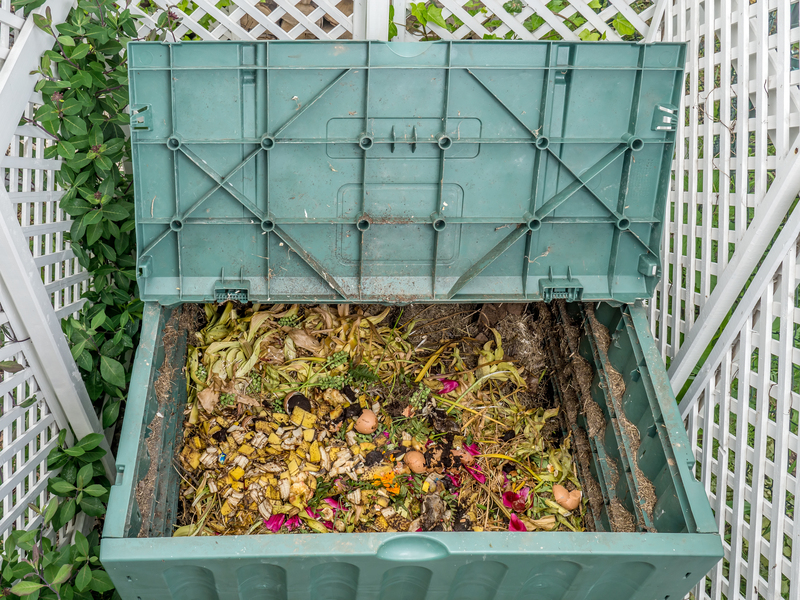Signs You're Becoming a Hoarder
Posted on 05/10/2025
Signs You're Becoming a Hoarder
Hoarding is often an overlooked issue, but it can have significant impacts on your life and mental well-being. Recognizing the signs early can help you take proactive steps to manage or even reverse the behavior. This article delves into the signs you're becoming a hoarder, along with tips, pros and cons, and actionable takeaways.
1. Excessive Accumulation of Items
One of the earliest signs of hoarding is an excessive accumulation of items, particularly things that others might perceive as useless or of limited value. This could range from old newspapers and magazines to plastic bags and broken items. When you're continually bringing new items into your home and failing to get rid of old ones, it may be a sign you're becoming a hoarder.

2. Difficulty Discarding Items
Another sign is finding it extraordinarily difficult to discard items, even things you haven't used in years. You may feel a strong emotional attachment to these objects or fear that you might need them in the future. The inability to let go of items can lead to accumulating massive piles of stuff over time.
3. Cluttered Living Spaces
Over time, the accumulation of items can lead to cluttered living spaces. Rooms that were once functional may become virtually unusable due to the amount of stuff filling them. If you're having trouble finding space to walk, sit, or perform everyday tasks, it's a red flag.
4. Social Isolation
As your living space fills up with clutter, you may begin to isolate yourself from friends and family. You might feel embarrassed about letting others see the state of your home, leading you to decline social invitations or avoid having people over. This isolation can contribute to a cycle of hoarding behavior.
5. Difficulty Organizing
Hoarders often struggle with organization. You might find it challenging to categorize or sort through your belongings, leaving items in piles rather than putting them in designated places. This disorganization further exacerbates the clutter and makes it even harder to manage.
6. Distress and Anxiety
Owning and seeing clutter often causes significant emotional distress and anxiety. You might feel overwhelmed by the amount of stuff in your home and the seemingly impossible task of organizing it. This anxiety can further entrench the hoarding behavior, making it difficult to break free.
Pros and Cons of Hoarding
Pros
- Sentimental Value: You can hold onto items that have emotional significance.
- Future Use: Items kept might be useful someday, potentially saving money.
Cons
- Safety Hazards: Clutter can create fire hazards and obstruct pathways.
- Health Risks: Accumulated items can harbor dust, mold, and pests that can affect your health.
- Social Isolation: Clutter can lead to embarrassment and social withdrawal.
- Mental Distress: Hoarding often causes significant psychological stress and anxiety.
Tips to Manage Hoarding Tendencies
- Seek Professional Help: Therapists and counselors specializing in hoarding disorder can provide significant assistance.
- Start Small: Begin decluttering one room or even one section of a room at a time.
- Set Goals: Establish clear, achievable goals to keep yourself motivated.
- Ask for Help: Friends and family can offer physical help and emotional support.
- Use Storage Solutions: Invest in shelves, bins, and other organizing tools to help manage items.

Takeaways
Recognizing the signs of hoarding is the first step to addressing the issue. From difficulty discarding items to experiencing significant distress, these signs can guide you in understanding your behavior. Hoarding comes with both advantages and disadvantages, but the negative impacts on health and well-being often outweigh the benefits. By seeking help and setting small, achievable goals, you can begin to regain control over your living space and life.
Conclusion
Hoarding is a complex issue that affects many aspects of life, from your physical space to your emotional well-being. It's important to recognize the signs early and take proactive steps to manage the behavior. Whether you seek professional help or start decluttering one step at a time, addressing hoarding tendencies can significantly improve your quality of life.
Take the first step today by assessing your own habits and considering if any of the signs resonate with you. If so, don't hesitate to seek help and take action. Remember, reclaiming your space is not just about physical clutter; it's about regaining control over your life and well-being.
Latest Posts
Cutting Down Waste in the Workplace


 office@benandjerry.org.uk
office@benandjerry.org.uk https://benandjerry.org.uk/
https://benandjerry.org.uk/

